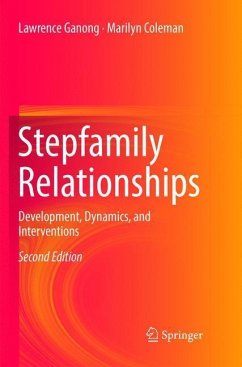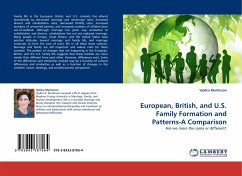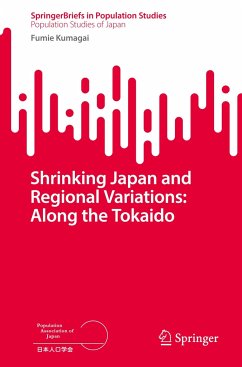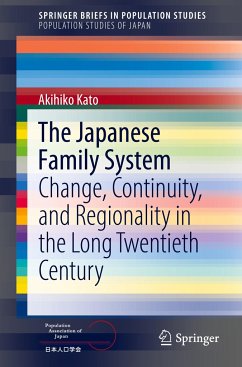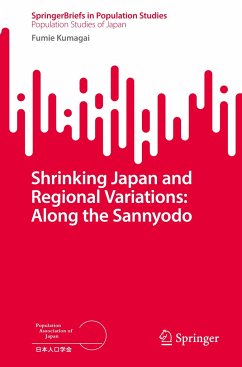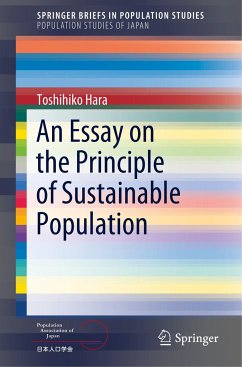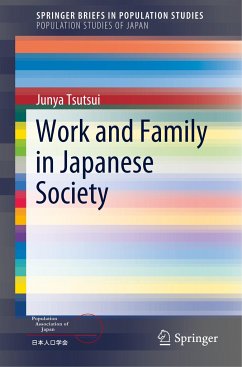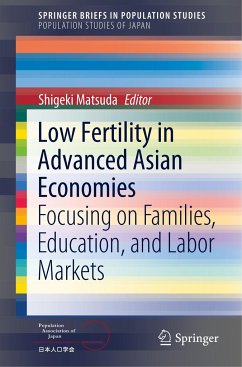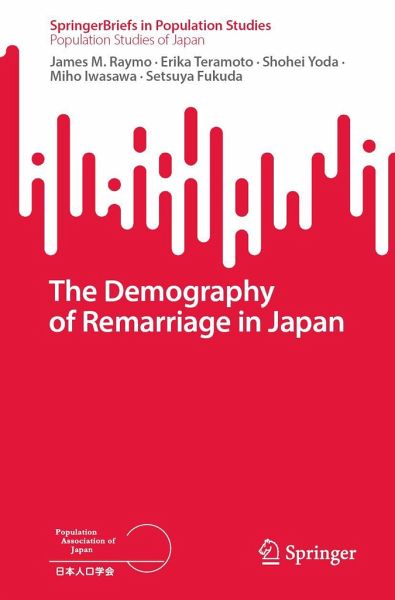
The Demography of Remarriage in Japan

PAYBACK Punkte
17 °P sammeln!
This book provides the first comprehensive demographic overview of remarriage in Japan. Despite the fact that nearly one in five marriages in Japan now involves at least one formerly married spouse, very little is known about the nature of remarriages and how they differ from first marriages. One important focus of this book is to examine fertility intentions and outcomes in remarriages and to compare them with marriages in which both partners are in their first marriage. It is well known that low rates of first marriage contribute to Japan's very low total fertility rate (TFR), but there is c...
This book provides the first comprehensive demographic overview of remarriage in Japan. Despite the fact that nearly one in five marriages in Japan now involves at least one formerly married spouse, very little is known about the nature of remarriages and how they differ from first marriages. One important focus of this book is to examine fertility intentions and outcomes in remarriages and to compare them with marriages in which both partners are in their first marriage. It is well known that low rates of first marriage contribute to Japan's very low total fertility rate (TFR), but there is currently no theoretical or empirical basis for understanding how levels and patterns of remarriage are related to the TFR.
To understand trends and patterns of remarriage in Japan, the book begins with an overview of the voluminous research literature on remarriage in the USA and other Western countries. This overview consists of a summary of trends and theoretical frameworks for understanding remarriage and is followed by a summary of existing research on correlates of remarriage and outcomes associated with higher-order marriages. Of particular importance is the attention paid to stepfamily fertility and the extent to which remarriage is associated with overall levels of fertility.
An important contribution of this book is its presentation of basic descriptive information about levels and correlates of remarriage in Japan. These descriptive analyses are based on published data in the vital statistics reports and individual-level data from the National Fertility Surveys conducted by the National Institute of Population and Social Security Research and the National Survey of Households with Children conducted by the Japan Institute for Labour Policy and Training.
To understand trends and patterns of remarriage in Japan, the book begins with an overview of the voluminous research literature on remarriage in the USA and other Western countries. This overview consists of a summary of trends and theoretical frameworks for understanding remarriage and is followed by a summary of existing research on correlates of remarriage and outcomes associated with higher-order marriages. Of particular importance is the attention paid to stepfamily fertility and the extent to which remarriage is associated with overall levels of fertility.
An important contribution of this book is its presentation of basic descriptive information about levels and correlates of remarriage in Japan. These descriptive analyses are based on published data in the vital statistics reports and individual-level data from the National Fertility Surveys conducted by the National Institute of Population and Social Security Research and the National Survey of Households with Children conducted by the Japan Institute for Labour Policy and Training.



